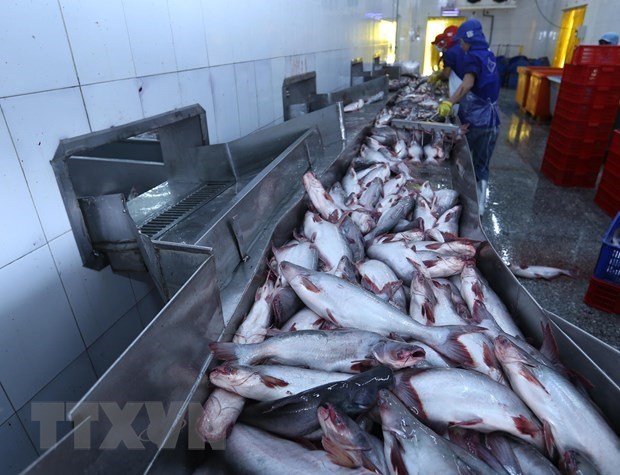 |
According to seafood exporters in the Mekong Delta, Tra fish exports have been erratic, and the demand in big markets such as China and the US has fallen.
Exports to mainland China and Hong Kong in March were worth 39.5 million USD, 12.9 percent lower than last year, while exports to the US saw a 44 percent drop.
Doan Toi, general director of the Nam Viet Corporation (which specialises in exporting seafood), told the Sai Gon Giai Phong (Liberated Saigon) newspaper that Tra fish exports were worth around 1 billion USD to China and the US last year.
Despite the high figure, both markets can be volatile due to changing policies and tariffs, so more export destinations are preferable to only one or two markets, he said.
Toi said that exporters should focus on the EU as the number of shark catfish exports has risen after a period of low exports.
Around 72 million USD worth of fish were exported in February and March, 42 percent higher than last year.
Foreign markets are demanding tougher technical specifications to ensure food safety and quality, such as China restricting cross-border imports of agricultural products and seafood, according to the Agriculture, Forestry and Aquaculture Product Quality Management Department.
In addition, the EU restricts imports from Vietnam if banned substances are detected in Vietnamese shipments.
Quality standards, improved linkages between farmers and businesses, use of materials for other processed products, and more promotions are all needed, according to experts.
An Giang and Dong Thap provinces are two of the Mekong Delta’s leaders in Tra fish farming, processing and exporting.
According to An Giang People’s Committee, its farming areas for the fish amount to 1,300-1,400 hectares, with output of 380,000-400,000 tonnes.
The industry targets exports of around 2.4 billion USD this year.
 Tiếng Việt
Tiếng Việt 普通话
普通话




